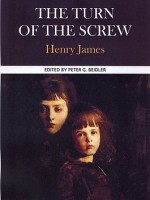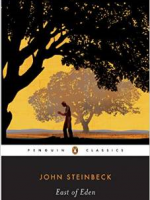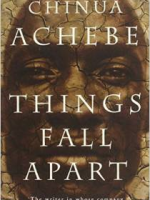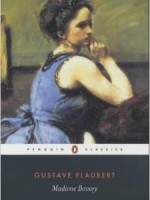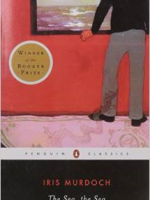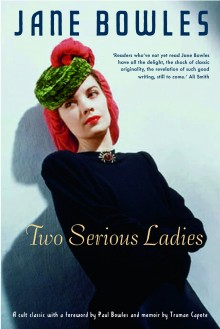 Two Serious Ladies
Two Serious Ladies
Prostitution
2010
286

In a new series that could be called ‘lesser-spotted classics’ Peter Owens have just published various works of literature from the 20th century that, through no fault of their own, have been over-looked or were marginal successes. One such is Jane Bowles’ Two Serious Ladies. Championed in the introduction by Truman Capote, the cover features a quote from Tennessee Williams who dubs it his “favourite book”. It’s a quirky tale, blackly comic, of two American society women trying to find themselves, at a time when women’s roles were limited and highly categorised. The two women are acquainted but their journeys to self-discovery are very different.
Christina Goering is a spinster who takes a companion, Miss Gamelon, into her wealthy home. The two are bound by routine, solitude and catty exchanges. Christina longs to escape and buys a tumbledown house on an island. Before long, a male friend, Arnold, moves in with them followed briefly by his father. Frieda Copperfield, fragile and fraught with insecurity, accompanies her bored husband on a trip around South America. In Panama, the couple drift ever further apart and Frieda finds herself captivated by the seedy underworld of the city. She encounters (and falls for) a once-beautiful prostitute called Pacifica. Spending less and less time with her husband she takes rather easily to the brothels, back streets and drinking.
While Frieda is in love with a prostitute, Christina pushes herself into a new realm by becoming a high-class hooker. Journeying back and forth to the mainland, she gets into various short-term relationships as a ‘kept woman’. We’re never sure if her housemates know of her career but it’s hinted that they do – and that they accept it. The household is an unconventional one where the rules of domesticity are upended. Both rebel against patriarchy and the accepted idea of what a woman should do/be.
The first part of the narrative introduces both women before focusing on their separate experiences. At the end of the book, they are reunited, much changed by what has happened to them. Without revealing too much, the book asks if they are any better off for their experiences by the end of the story. Could women of that era ever really have broken away from the roles society has established for them? It’s a quirky book that was greeted with incomprehension when it was published 60 years ago. Bowles addresses the darker corners of life but with humanism and plenty of black humour. This kind of exploration that blurs the lines between sexuality and the female quest for independence has been addressed before. Angela Carter’s The Passion of New Eve and Djuna Barnes’ Nightwood both came to my mind reading this, but Bowles’ humour and wit is unmistakably her own. An enjoyable, unpredictable, feminist classic. ![]()
